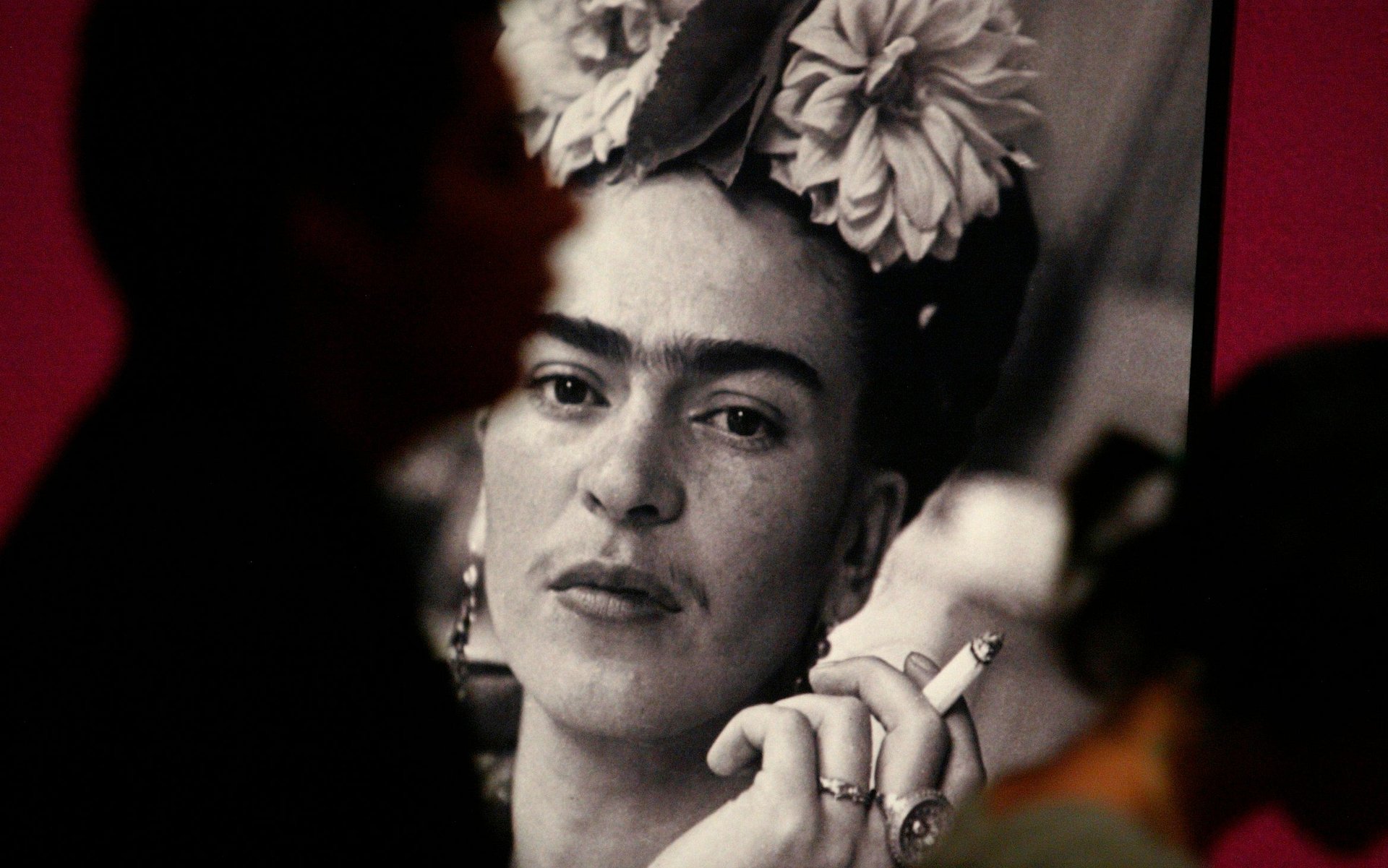Ulta plucked Frida Kahlo’s eyebrow for the artist’s themed makeup kit
When beauty giant Ulta unveiled the promotional art for its Frida Kahlo-themed makeup kit this week, something was missing: her unibrow.


When beauty giant Ulta unveiled the promotional art for its Frida Kahlo-themed makeup kit this week, something was missing: her unibrow.
The makeup kit, currently available online and set to hit stores on July 22, was launched to coincide with Kahlo’s birthday on July 6. It includes a selection of eye shadows, lipsticks, highlighters, primer, brushes, and, yes, brow-liner. Ulta merchandising head Monica Arnaudo told Allure that the company hopes its collection “will empower our guests to express themselves with the same confidence that Frida embraced.”
Ulta is far from alone in commoditizing Kahlo’s image. Although she died some 60 years before Instagram, Frida Kahlo was something of a personal-branding genius, and a rare symbol of convention-defying beauty. The dark unibrow and mustache, the smudges of red on her lips and cheeks, the flowers in her hair—Kahlo’s face has been a cultural reference point since it was immortalized in her famous self-portraits.
Still today, her likeness is inescapable: She’s an eternally popular Halloween costume, a Barbie, and has appeared on everything from nail polish to emoji. She’s also timelier than ever. As Suzanne Moore wrote for the Guardian: “The directness of [Kahlo’s] gaze is itself a feminist act, the aestheticizing of her disabilities is resistance. The complexity, the color, the huge intelligence—all of it is compelling.”
Ostensibly, to invoke Kahlo’s image is to tap into the Kahlo patina, to associate your brand with some of the many things that she symbolizes: resistance against adversity and oppression, feminism, and queerness among them. But slapping her doctored image on a makeup kit and selling it online for her birthday may do more to turn off than entice a discerning customer, to whom Kahlo’s image means more than brow pencil.

A plucked eyebrow is only the tip of the irony iceberg when it comes to selling products marked with Kahlo’s face. The artist was famously anti-capitalist, spent her 20s as a member of the Communist Party, and sported a hammer and sickle on her body cast after a near-fatal childhood injury. In one self-portrait, she painted herself lounging next to a large canvas of Stalin.
But despite some backlash online, Ulta probably won’t take too hard a hit from what might fairly be considered a Frida faux pas. As a beauty company, it has made few cultural missteps. And it’s not unusual for beauty brands to capitalize on culture—Game of Thrones, The Lion King, SpongeBob SquarePants, and Pac-Man all have makeup collections. For all its missing eyebrow hairs, the Kahlo collection may also introduce some of Ulta’s millions of customers to an icon they didn’t otherwise know. You might even argue that Kahlo herself wouldn’t have minded the collaboration: As Tess Thackara notes in Artsy, “to some observers, the pervasiveness of Kahlo’s image (and its related commercial appeal) would have amused and pleased the artist. She wanted to be seen. She painted herself, repeatedly—sometimes in the guise of a saint or martyr.”
Any backlash puts Ulta in plentiful company. Public outcry has forced Prada to recall keychains that resembled a Sambo figure; Gucci to pull sweaters and Katy Perry shoes that conjured images of blackface; and Kim Kardashian to change the name of her shapewear line from Kimono to TBD (we’re still waiting). Perfume brand Pinrose had to pull a “Starter Witch Kit” from Sephora stores after witchcraft practitioners accused the brand of trivializing their religions, and just last week, Nike yanked a sneaker embroidered with a Betsy Ross flag after getting criticism from NFL star Colin Kaepernick and others.
In the age of conscious consumerism, buyers are more particular than ever about the social, environmental, and political impact of their purchases—or at least about signaling their intention to be more particular than ever. As well as getting “canceled” by the internet, companies that are out of step with changing social standards can suffer financially, often leaving space for companies that are evolving. A good example of this is happening in the lingerie industry: Aerie, American Eagle’s body-positive, ultra-diverse underwear brand, is thriving. Meanwhile, the regressive marketing tactics of Victoria’s Secret have knocked it into the red. Now a whole slate of female-focused bra startups—less interested in the male gaze, more focused on female comfort—is emerging.
In Ulta’s case, the Kahlo kit is, for now, a silly gaffe; perhaps they even anticipated some backlash. And while an all-out boycott is unlikely, it does earn the beauty giant one long, single, skeptical eyebrow-raise.
Update: The Frida Kahlo Corporation confirmed they collaborated with Ulta on the kit.